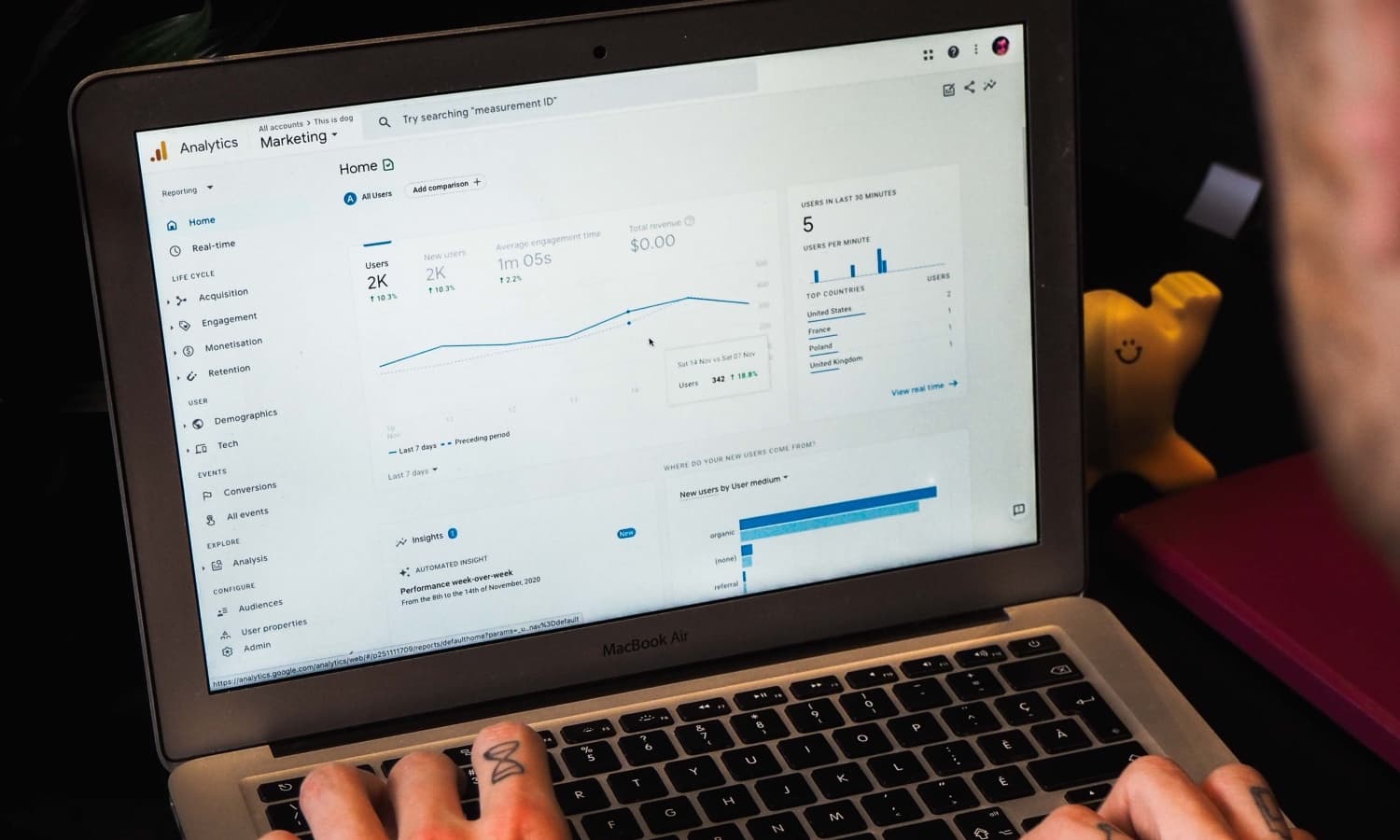Get ready for Google’s GA4
27th May 2022

Google Analytics has become an invaluable tool for businesses tracking their website traffic and behaviour – including many of our clients. And now there are big changes about to happen that will affect anyone using the product.
After 16 years providing 66% of the most popular websites with their statistics, Google will say goodbye to Universal Analytics on July 1, 2023, and Universal Analytics 360 shortly after on October 1, 2023, replacing them with Google Analytics 4 (GA4). It’s a key switch to privacy-friendly Google web products that will affect many marketers and businesses.
By tracking events rather than specific IP addresses and not exclusively relying on Cookies, the GA4 model can operate across multiple platforms meaning a more future-proof tool that will offer a lot more privacy protection.
GA4 also offers several benefits over the Universal Analytics tool:
- GA4 has been designed with privacy in mind and will work with or without cookies or identifiers. Google will use modelling (Google Signals) to fill in any gaps in information when you can’t use cookies
- It works across all your websites and apps to give a complete view of how customers interact over various platforms
- New features previously on Analytics 360 will now filter down to the free version of Google Analytics
With the new version not as widely used, the layout and terms won’t be as familiar to many people – plus you could lose valuable historical web data without the right preparation, so it’s best to get your business ready to move to GA4 sooner rather than later.
A couple of new terms you’ll need to keep an eye out for are:
- Engaged sessions: Rather than counting all sessions within a site, GA4 focuses on engaged sessions – those where the session either lasted at least 10 seconds, had one or more conversion events, or had two or more page views. (For this reason, sessions in GA4 are likely to be lower than those in Universal Analytics, but they are arguably a much more valuable metric to measure!)
- Average engagement time per session: Google explains this as the User engagement duration per session. In other words, the amount of time the user is actually engaging with the page (scrolling, interacting with content etc) and the page is the primary window being viewed on the screen.
- Engagement rate: Engagement rate is the ratio of Engaged sessions to total sessions. If you had 1,000 total sessions and 130 of them qualified as Engaged sessions, the Engagement rate would be 13%.
Clearly these new metrics will take a bit of getting used to, but there’s no denying they’re critical advancements that are needed for us to effectively track user behaviour in the new world of hybrid working, multi-channel, cross-device.
What do you need to do about the move to GA4?
Universal analytics might not be being phased out for a while yet, but you do need to take some action as soon as you can to make the transition as painless as possible.
While Google is giving you 6 months to view historic data, you’ll need to export data to reference to after this, so enabling GA4 sooner rather than later will mean a smoother transition between the two and allow you to get to grips with the platform.
Don’t worry, this is easier than you think and if you don’t have time to get your head around the new platform right now, we’re recommending you run the two alongside each other for the next 12 months so you’re collecting data in both platforms (There’s some handy instructions on how to do this here.). But don’t forget, if you’re running Google Ads campaigns and rely on data linking from Universal Analytics, you’ll need to make sure you’re:
- Moved custom audiences from Universal Analytics to GA4 audience in your campaigns, which is most commonly used for remarketing.
- Imported site metrics such as conversions and events from Universal Analytics to GA4, as these are often then used to track effectiveness of ad campaigns .
As you’d expect, Google are offering step by step guides to make sure everyone is prepared for the switch too.







